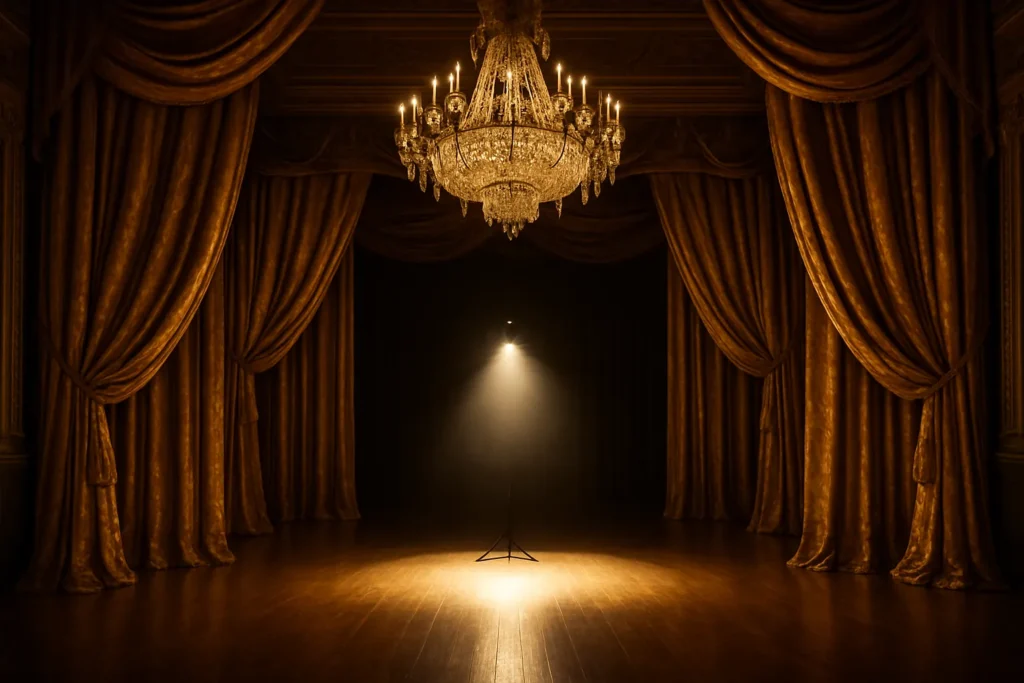The Day Hollywood and Trump Collided
Picture a film set in the late nineties: Emma Thompson, recently divorced, is tucked inside her trailer between takes for Primary Colors—a political dramedy mimicking the tumultuous Clinton years. The phone rings. “Hello, this is Donald Trump.” No layers of polite intermediaries. No preamble. Just the brash, unmistakable voice of a Manhattan tycoon, then best known for ostentatious towers and tabloid-fueled divorces. Thompson, thinking it’s a prank, waits for the punchline. But Trump, undeterred, extends an invitation: dinner, perhaps a stay at his famous properties—an offer equal parts audacious and surreal.
Why does this bizarre intersection of Hollywood and power capture our fascination? Because behind the tabloid punchlines and late-night jokes, there’s a revealing glimpse into the way proximity to power operates in America. Thompson shared the story again at the Locarno Film Festival, where she received the prestigious Leopard Club Award, infusing the encounter with wry British humor: “I could have changed the course of American history!” The joke lands—her listeners laugh—but what surfaces beneath is discomfort, a nagging tension woven through decades of American pop culture and politics.
The day Thompson’s divorce was finalized, Trump had also split from his second wife, Marla Maples. According to Thompson, she was selected for this approach not by chance but by calculation—evidence, she implied, that Trump’s circle may have been ‘looking for eligible divorcées.’ The peculiar act of sourcing her trailer number isn’t just an odd detail; it thrusts the story into murkier waters. As Thompson quipped to a festival crowd, “I thought it was stalking.”
Stars, Scandals, and the Politics of Pursuit
Moments like this reveal more than just celebrity gossip. They highlight the enduring, uncomfortable relationship between celebrity, gender, and unchecked privilege. Emma Thompson’s brush with Trump isn’t an isolated tale floating in Hollywood ether. Salma Hayek—another acclaimed actress—recounted a parallel advance from Trump, and experienced dubious tabloid repercussions after rejecting him (in Hayek’s case, an unflattering rumor in the National Enquirer about her appearance).
What’s striking in both women’s stories isn’t just the bravado of a man accustomed to hearing “yes.” It’s the machinery around him, a culture in which access to fame, wealth, and political reach emboldens entitled behavior—and shrugs away accountability. Harvard sociologist Sarah Sobieraj notes, “We often see powerful men operate in spaces where boundaries blur, and the repercussions for overstepping them are almost non-existent.” These anecdotes, resurfaced in a #MeToo era, demand we look closer at how power shields—and sometimes rewards—the pursuit of women both on- and off-screen.
The Trump-Thompson encounter unfurled during filming for Primary Colors, a satire lampooning the very nature of political and personal excess. That Thompson was stepping into a role inspired by Hillary Clinton—herself an emblem of high-profile marital drama—adds layers of surreal irony. Hollywood’s collision with politics is hardly new. From President Reagan’s film star past to Arnold Schwarzenegger’s gubernatorial ambitions, Americans have often blurred the line between screen presence and political power. The difference with Trump: his unfiltered entitlement, which became his brand long before it turned into executive policy.
“I could have changed the course of American history!”
—Emma Thompson, on Trump’s dinner invitation
Beyond that, Thompson’s own commentary weighs heavy with the sort of introspection more often found in her film roles than red-carpet interviews. What if she’d said yes? It’s a rhetorical flourish—she’s clearly relieved she didn’t—but it invites us to think about the countless small, unseen interactions that accumulate into our public lives and shared stories.
Humor, Power, and the Teeth of Accountability
One might ask: Is this just anecdotal awkwardness or a reflection of more systemic flaws? While the story drew laughs at Locarno, it also set a mirror before an American culture infatuated by star power and deeply forgiving of male transgression, especially among the affluent and influential. What do we lose when such stories live only as punchlines, and uncomfortable questions go unasked?
British wit aside, the real lesson is chillingly clear: for decades, powerful men have wielded their status not just as currency, but as a pass. As The New York Times reported during the height of the #MeToo movement, ‘the line between consent and coercion bends easily in rooms where wealth and fame set the rules.’ The line is even thinner for women on Hollywood’s front lines. Thompson’s recollection about the grueling pressure of Oscar campaigns—how it left her “seriously ill”—adds a further dimension. The world marvels at designer gowns and dazzling smiles, yet ignores the mounting burdens facing women asked to perform not just for the camera, but for an industry always watching with a critical gaze.
A closer look reveals the subversive brilliance in Thompson’s decision to tell this story on her terms. By recontextualizing Trump’s uninvited dinner invitation as both a joke and a warning, she both disarms and enlightens. This approach echoes the work of countless women who have sought to use their platforms not simply for confessional headlines, but as springboards for broader conversations about power, accountability, and the right to define one’s own narrative.
Such candor matters, now more than ever. As progressive values of consent, transparency, and equality are challenged by retrenchments in policy and culture, voices like Thompson’s puncture the illusion that fame itself equips women to be safe, respected, or truly empowered. Instead, her anecdote belongs to a collage of stories demanding a more just future—a future that doesn’t confuse laughter for absolution, or star encounters for meaningful change.

